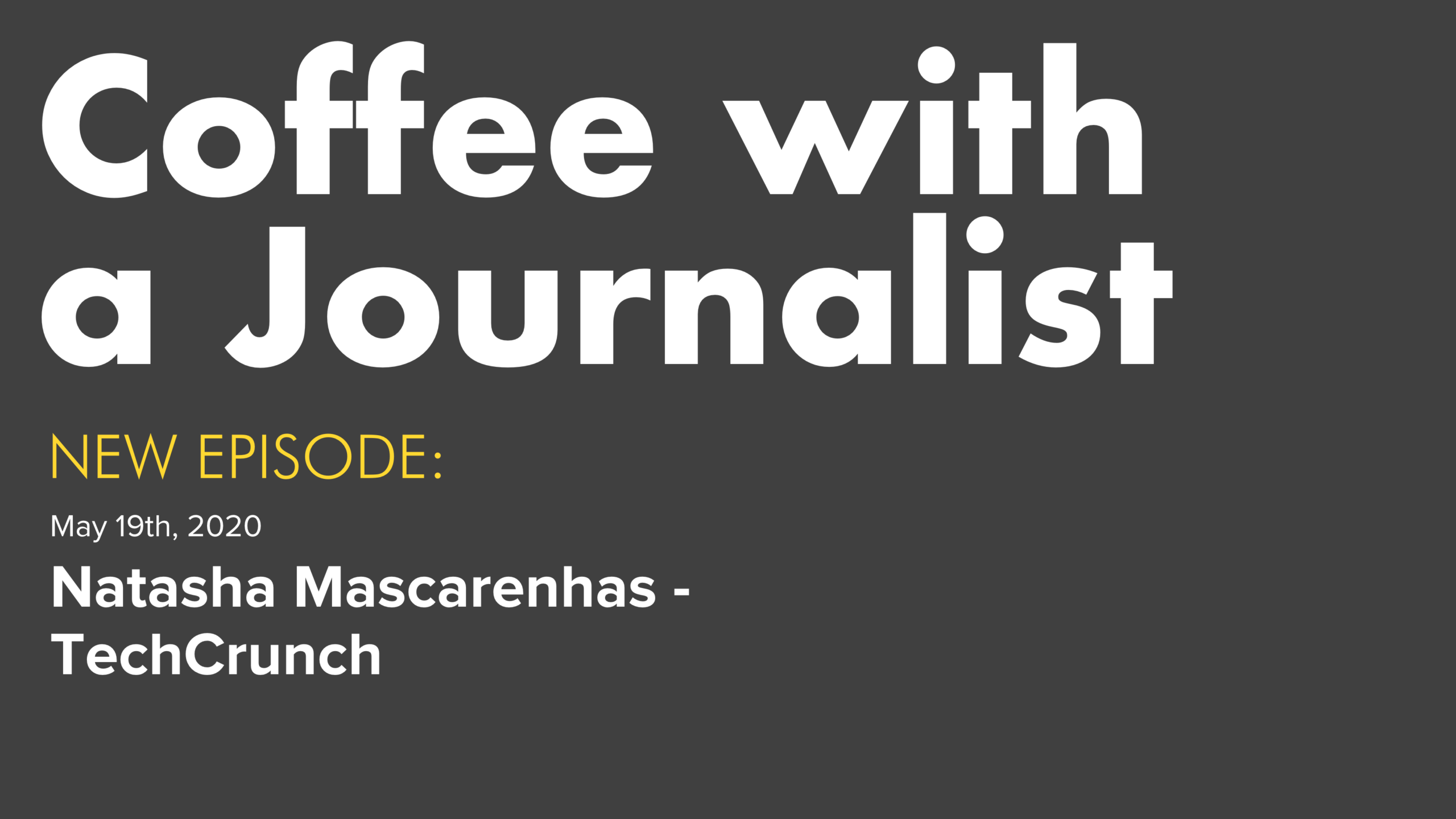Coffee with a Journalist: Natasha Mascarenhas, TechCrunch

This week on season two of Coffee with a Journalist, host Beck Bamberger sits down with Natasha Mascarenhas of TechCrunch. Natasha is a San Francisco-based reporter covering venture trends and early-stage startups. Beck and Natasha sit down to talk about Natasha's journalistic journey that brought her to TechCrunch, her writing process, and her predictions for where journalism is heading.
How She Writes Stories
Beck: Oh, nice. Well, you cover, as folks probably know, overall venture capital startups, all things related to Silicon Valley and the wild world that it is. We like to talk about a certain number of topics here on this podcast. One that starts with really, how do you come up with, how do you make an incredible story? So can you tell us just where do you start from the idea all the way to the article being published, how that comes about?
Natasha: Totally. So I feel like most of my favorite story ideas have come from basically walking around and having a conversation. And the conversation is probably not going to be what the story idea ends up being, but something about a turn of phrase or a billboard inspires me to pick up a story. So-
Beck: A billboard?
Natasha: Yeah. So-
Beck: Incredible.
Natasha: One example was I went on a walk with a VC and we were just talking about the state of life and we passed on one of the many billboards in San Francisco. We ended up talking for 20 minutes about how Facebook and Google ads has become an overcrowded market and how billboards are a way to do untraditional advertising these days. That ended up being a story for Crunchbase News. And I feel like many journalists, I feel like the best stories are the ones that we're not hitched directly, but the ones we stumble across serendipitously.
Her Work Inbox
Beck: Oh, how refreshing. That's good. So speaking of that ties into then next thing we like to talk about, which is just your inbox. I mean, what does it actually look like? Do you have hundreds of stories hanging out in there? Do you read every pitch? What would you say?
Natasha: Yeah. So, recently I feel like I get roughly 700 to 900 emails a week. It's been a lot. Maybe it's because everyone's remote at the moment and they have more time to send emails. And-
Beck: Are those just the pitches or is that your aggregate number?
Natasha: That is my aggregate number.
Beck: Okay.
Natasha: Sometimes it's follow ups for... I think, let's say 65, 70% are pitches. So I don't click through every single email. I scan through every page. And if it's one by someone I know, I'll click on it. Or if it has a headline slash first sentence that feels like it wasn't written by a robot, then I definitely click into it.
Beck: Good. Good. Yep.
Natasha: Yeah, I mean I think that I try and get myself to refresh my email before I sleep and then once in the morning as and then during lunch. But during the day I don't get to be on my email as much. So the best way to contact me has ended up being my Twitter DMs.
Her Thoughts on Pitching
Beck: I like that. So moving on from just then the pitches and what you're seeing. Since you've been recently new, I'd say, at TechCrunch and you're figuring out your beat, your focus and so forth. And I think this happens for a lot of folks when they get into a new role at a new media outlet and it's still up in the air. What's your advice for folks who want to pitch you, giving you something that actually would be relevant as you navigate and hone in on your actual beat or maybe more what you'll be focused on?
Natasha: Totally. So the good thing for journalists but probably be the hard thing for people pitching is that, I think at TechCrunch there is no one that's super tied to one beat. There are people that specialize and you see that with automotives or cybersecurity, but a lot of people are generalists. So that does make pitching a little bit more difficult. So that's number one.
Natasha: But number two, the best way to pitch me, I think right now is something that's not going to change about my job, is that I'll be reporting on seed and early-stage startups and how they work, how they grow, fail and tracking the next big companies before they get bigger.
Beck: Explore them.
Natasha: Yeah.
Beck: Gotcha.
______
Make sure your next pitch to Natasha, or other journalists like her, has the most important included and outlined in a clear way. Need a place to start? Download the free eBook on the 5 Essentials to Pitching. It guides you through crafting pitches based on subject lines, subject matter, timeliness, and more!
Was this episode not what you were looking for? Check out past guests from this season on our podcasts page and subscribe for weekly, exclusive episode content.
